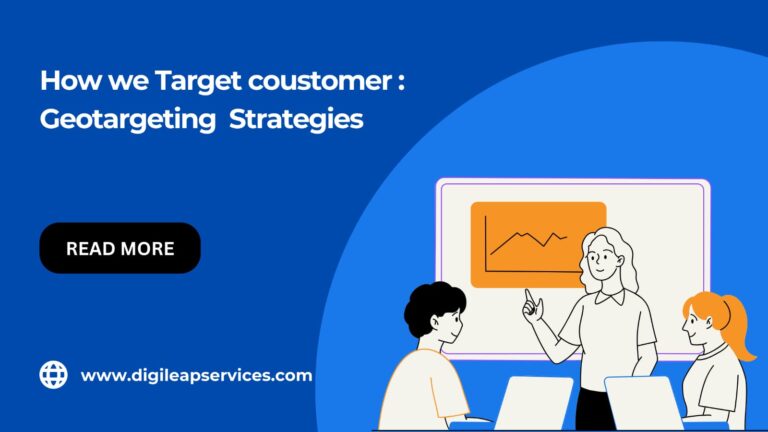Top 9 Digital Marketing Strategies for the Food and Beverage Industry
Introduction
As more and more individuals embrace the digital lifestyle, the need for digital marketing strategies for food and beverage through different digital channels and resources is increasing and cannot be ignored. More than ever, food and beverage companies are incorporating digital strategies to remain afloat or stay relevant in the business as the rates of consumers’ online research and purchases keep increasing.
Several tactics, such as engaging customers via social media, search engine optimisation (SEO), and many others, aid in reaching and retaining clients. Knowing and applying these strategies improves an individual’s or organisation’s visibility and consequently sales, which is why digital marketing strategies is a must for food brands.
1. Social media marketing
Regarding social media marketing for food brands, media channels such as Instagram, Facebook, and Twitter are excellent mediums for advertising products. Calling for interaction through attractive content and beautiful photos and encouraging customers to interact helps businesses. Consistency in updating posts, competitive marketing of new dishes, advertisements, and engaging tour behind-the-scenes clips bonds with prospective clients. Proper utilisation of hashtags and thumb rules increases engagement levels even more.
2. Partnerships with Influencers
In the scope of influencer marketing in F&B, writing practice is the strongest strategy because you can use food bloggers and social media personalities to promote your products to a wide audience that they already have. This will enhance brand visibility and credibility. The right influencers—those with a close audience to the one you are trying to reach—can also drive sales and enthusiasm for your brand, translating into repeat customers.
Also Read: How We Step-by-Step Approach to Effective Business on Pinterest
3. Search Engine Optimisation (SEO) digital marketing strategies
Through search engine ranking improvement through SEO for food and beverage companies, the search for the company by a consumer on the internet is made a little less difficult. From enhancing the contents of your site to acquiring link banks, proper implementation of SEO strategies aid in increasing the visibility of food businesses. It is made easy through local search engine optimization for restaurants and cafes, where consumers are likely to find the establishment by searching for it online.
4. Content marketing Digital Marketing Strategies
By employing methods such as content marketing, you can develop content that will appeal to your audience and that they want to use. Food and beverages, blogs, recipes, and how-to guides can create brand awareness for your business and brand it as an authority in the market. Continuously providing quality content means customers keep returning, increase brand awareness, and improve strategies, which improves the traffic to your website.
5. Email Marketing
One of the engaging ways to create a direct connection with your customers is through email marketing for food industry businesses. With newsletters, promotional offers, and events, you provide your customers with the information they need in their inbox. Since it targets a particular customer, the email marketing method enables the business to engage with its customers and cultivate more sales, making it cheap.
6. Paid Advertising (PPC)
There are several reasons why PPC advertising is effective for food companies; pulling audiences in a short period is one of them. Food and beverage businesses can use per-click ad services such as Google and social media to get their products to the right people. This method makes them view your content in a way that is likely to sell your products and therefore increases the overall ROI.
7. Video Marketing digital marketing strategies
Introducing the use of video content as a type of advertisement breaks one of the fun and active methods of marketing for the food and beverage industry. This makes it easy for the viewer to relate to the brand, as brands can use videos to describe delicious recipes, product demonstrations, or customer foundations.
Some examples are YouTube, Instagram, and TikTok, some of the most suitable opportunities for sharing such visual material. That is because videos always catch viewers’ eyes more than still images and have higher chances of being passed around, increasing the audience. Therefore, it could be argued that frequently using video marketing has enormous potential to enhance brand awareness and create better relationships with the audience.
8. Website Optimisation Digital Marketing Strategies
Website optimisation is a crucial aspect in the delivery of an excellent user experience, especially in the food and beverage sector. A website that is easy to navigate on a mobile device and one that loads faster ensures users do not ‘bounce’ or transfer to other competitors.
Website optimization means that your customers can locate your site, navigate through it to order food, and get other useful information such as the menu, your contact information, and your physical address. Usually, website designs with obvious invitations to action and fast loading/reaction times show massive improvement in conversion ratio. Besides, the combination of SEO elements in the website and its structure contributes to the business website’s ranking on the Internet and attracting more organic traffic.
9. Reputation Management Digital Marketing Strategies
Online reviews and reputation management influence the perception that potential buyers have towards any food and beverage brand in a significant way. While the positive reviews help you attract new customers, the negative reviews can drive your business into the ground. Some experts claim that reputation management means replying to comments, which can be both positive and negative, to demonstrate clients’ appreciation.
Utilising the benefits of satisfied customers and having them leave feedback on Google, Yelp, or social media adds credibility to the cause. Taking time to manage reviews constructively will help businesses manage their public image and ensure customers trust your brand and are comfortable with the decisions they are making.
Conclusion
At DigiLeap, we offer the proper direction to put these tactics into practice successfully, making sure your food and beverage company succeeds online. With our proficiency in digital marketing, we assist you in connecting with the appropriate audience and optimising your chances of success. Select us if you want a thorough approach to your demands in digital marketing.












